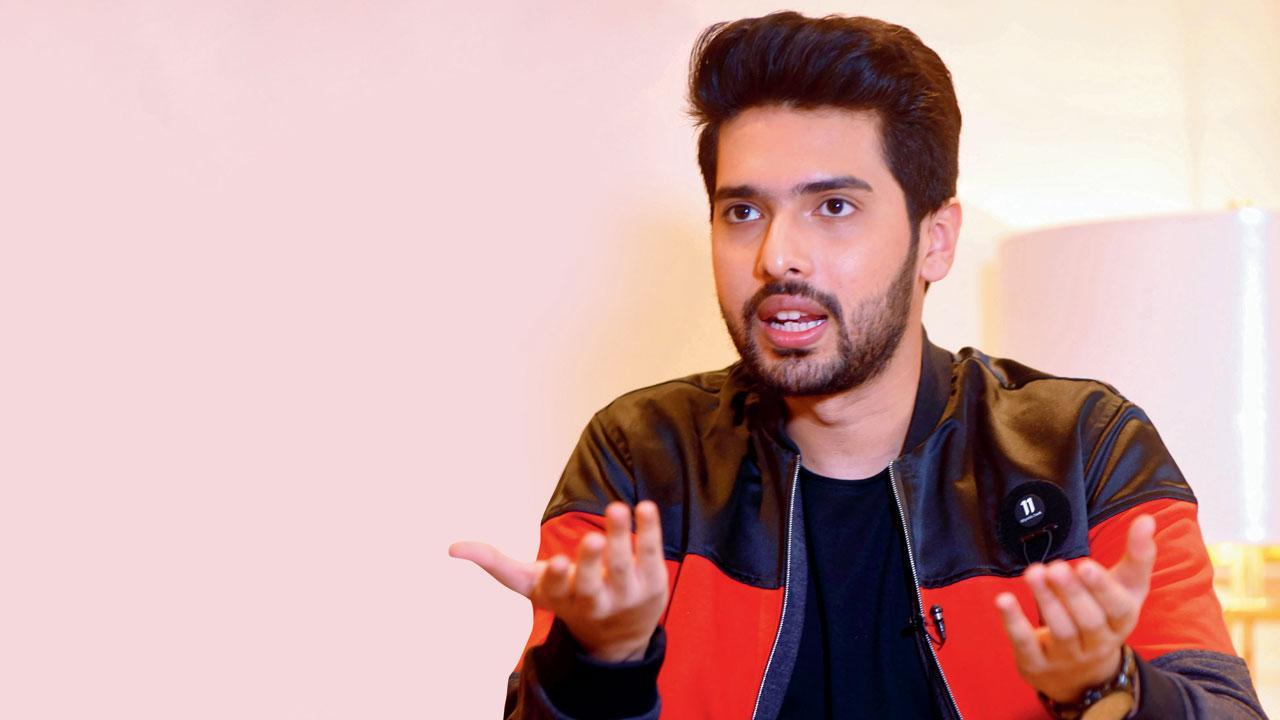The K-pop industry has managed to strike a great balance between good audio and appealing visuals-Armaan Malik
8:08 AM
Posted by Fenil Seta

Collaborating with K-pop star Eric Nam and DJ KSHMR for Echo, Armaan on taking responsibility for his choices as an indie musician
Sonia Lulla (MID-DAY; May 31, 2021)
Armaan Malik’s latest collaboration with Korean pop star Eric Nam and EDM artiste DJ KSHMR could only be considered another stepping stone in his flourishing career in the English music industry. In an interview, he discusses how the association came about.
What factors must an artiste consider when giving his nod to a collaboration?
Collaborations are a brilliant way for artistes to expand their creative palettes, explore new territories, challenge themselves, and learn something new. In order to get it right, it is important to be on the same page with your fellow associates, and respect each other’s opinions. A track isn’t an mp3 file. It is a culmination of the efforts of those who make it — mixing and mastering experts, video directors, social media managers, and other [technicians]. The toughest part is making sure that everybody’s creative inputs are incorporated, while maintaining the honesty of the track. The exciting part is merging everyone’s music styles in a way that makes the sound cohesive.
As an Indian associating with independent artistes from across the globe, what has been your biggest learning after Control?
The process of making a song, and everything that follows after the release, has been insightful. In playback singing, there’s a template that singers must follow. With my English music [career], everything is free-flowing, and dependent on my team. Several factors are responsible behind the performance of a Bollywood song. But here, the onus lies on us. Learning about how new markets react to my music, adapting to global standards, and understanding how western media partners work, is now routine.
What would you attribute the rapid success of the K-pop industry to?
Nothing like it has ever existed before. This isn’t a genre, but a lifestyle, and a universe in itself. I believe it is the lack of inhibition when experimenting with ideas that has pulled the fans towards this style. The K-pop industry has also successfully managed to strike a great balance between good audio and appealing visuals. It’s the full package — you see what you hear, and it is brilliant that language isn’t a barrier. One of the most insightful conversations I had with Eric had to do with amplifying the reach of Asian artistes in the global markets.
Drawing from your experience of collaborating with international artistes, what according to you makes the Indian industry special?
The sonic landscape, languages, and dialects. There’s no [single] genre of music that represents India’s music. Bollywood is the most popular one, but there are thousands of music industries that co-exist. That is special.
This entry was posted on October 4, 2009 at 12:14 pm, and is filed under
Armaan Malik,
Armaan Malik interview,
DJ KSHMR,
Eric Nam,
Interviews
. Follow any responses to this post through RSS. You can leave a response, or trackback from your own site.
Subscribe to:
Post Comments (Atom)
Post a Comment